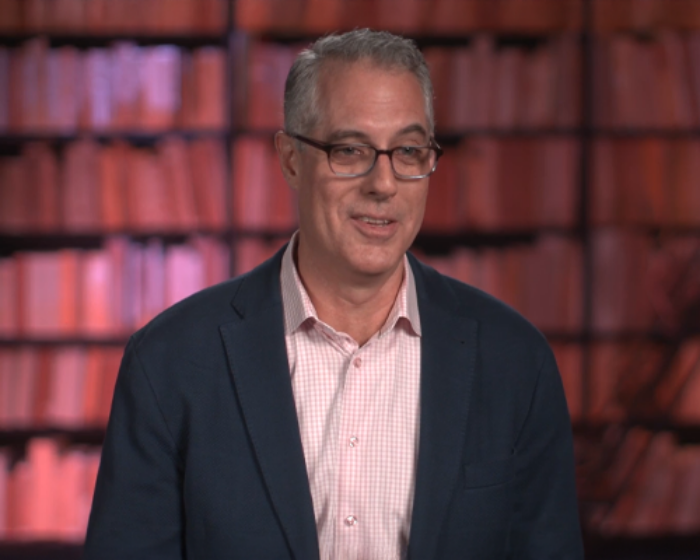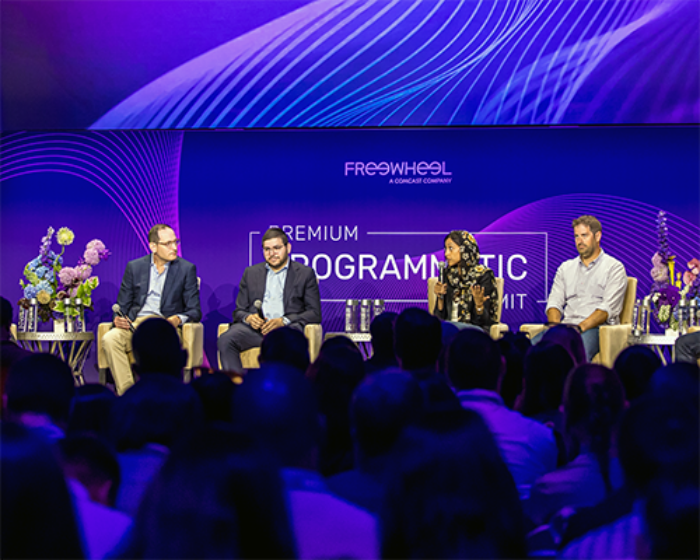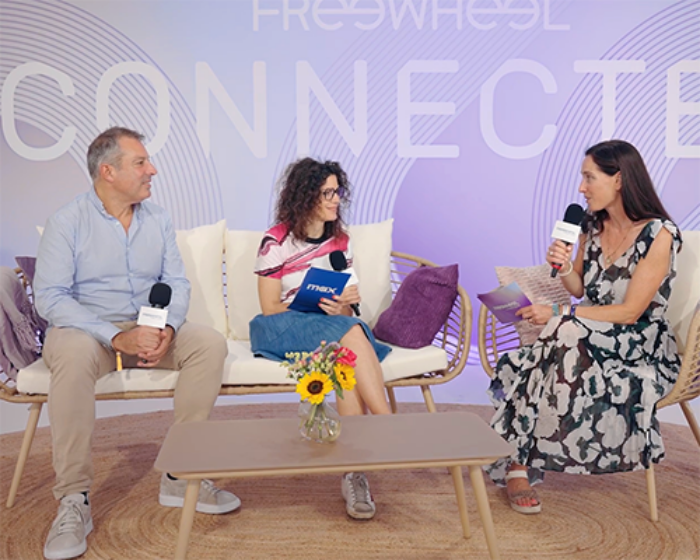The TV landscape has fundamentally changed, and the unstoppable rise of streaming services won’t be slowing down any time soon. With continued innovation in the streaming space across a broad range of video-related services including Connected TV (CTV), Advertising-Based Video on Demand (AVOD), Subscription Video on Demand (SVOD), Free Ad-supported Streaming TV (FAST), and beyond – market leaders continue to build better experiences for consumers and advertisers alike.
The Drum caught up with media industry leaders at CES 2023 to find out what it will take to unlock budgets and deliver results. Hear what they had to say in the video above.
“The best of digital has now met the best of television,” says Daniel Callahan, senior vice president, data strategy and sales innovation, Fox. “The data, insights and targetability that advertisers have taken advantage of in traditional digital and social for years, now are accessible and available in the streaming CTV space. This is the year that we will start to see more budgets and advertisers flock to this space for everything that it can unlock and deliver.”
“What I’m most excited about is the measurement capabilities that come along with advances in cross-platform reach and frequency and the new attribution capabilities that advertisers have been demanding,” says Bill Sheahan, vice president, product management, Charter Communications.
Putting the Consumer First
Evolving technology and a constant stream of new streaming entrants can make the marketplace complex to navigate. The key differentiator is content and advertising experiences that are built with the consumer in mind.
“We really need to put the consumer first and work harder and harder to put the right messages in front of the right audiences and respect that viewing experience,” says Katy Loria, chief revenue officer, FreeWheel.
“Consumers are seeking out content on a daily basis,” says Cara Lewis, chief investment officer, Dentsu International. “So, creators and the vendors need to create the content that will live on and be sought out by each consumer.”
“There continues to be an arms race from a pricing perspective to get the best must-see content out in the market, and we continue to see exclusivity, bringing that content in-house and making that content personalized to the platforms that have it,” says Matt van Houten, senior vice president, ad sales, DirecTV. “We’re seeing a lot of business models being evaluated. When you think about SVOD, AVOD, diginets and FAST channels, there’s a lot of opportunity being explored.”
Simplifying the Experience
Consumers today have more choice than ever around what content they choose to consume, and how they access that content. But when that content is distributed across so many different apps, it can create a fragmented experience for viewers to navigate between services.
“For consumers and viewers, it’s really hard to navigate across different streaming services and platforms [when you] have to close out of applications,” says Callahan. “If I’m a consumer, I’m looking for some re-bundling – a way to get more content into some place that is more discoverable and easy to toggle between the different services.”
“Consumers pay a lot of money to access a lot of content, at least in the US, and they can ask for the best value for anything that they purchase,” says Youssef Ben-Youssef, head of ad platform, Roku. “They should have a way to find the content that they want with ease, without having to search for a long time.”
With so many smart TVs available in homes today, free streaming channels that can be accessed natively by viewers replicate that the experience of watching linear television into a lean back environment – which provides a better way for viewers to access content.
“It’s really easy for consumers to access and it’s a new environment for advertisers to reach people who aren’t using traditional linear television,” explains David Dworin, chief product officer, FreeWheel. “That’s one of the exciting things that we’re seeing grow as it gets built into devices over the course of the next year. And the way to access it becomes better and better.”
A Sense of Identity
The streaming opportunity is heightened by consumers’ ability to create a sense of their own identity. Similar to how everyone’s social media feed is different, streaming puts a greater emphasis on personalization, both in terms of the content feeds that audiences enjoy and the experiences that advertisers offer.
“We’re going to see streaming convert to be almost as personal as someone’s social feeds,” says Peter Blacker, executive vice president, Peacock sales and agency partnerships, NBCU. “Advertisers will be able to go along in that journey and experience it in a very personal and relevant way as well.
“When we look at what streaming offers today, and how an individual is able to literally weave between English and Spanish, German, Italian, Japanese content, sports, news, etc, they are able to check multiple boxes, and are not literally programmed to, but they create their own programming. And that sense of identity is reflected in their stream and their streaming habits. I’m really excited about the freedom that provides both for content creators and also for advertisers that have been really wanting to lean into new concepts of identity and understanding multiculturalism in the US.”
With more planning tools available across channels, now is a prime opportunity for advertisers to experiment and “really lean into the planning tools that are available, start to learn and make big strides,” says Mark Rotblat, chief revenue officer, Tubi.
The key is to “align your brand with content that matters, that shares your mission statement,” says Philippe Guelton, chief revenue officer, Chicken Soup for the Soul. “Go beyond and rise above the 30 second ads and think about what content matters to you.”
This content has been modified from the original article published here on TheDrum.com.


